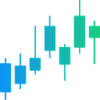Edit Your Comment
Over trading is a bad habit
Feb 11, 2019 부터 멤버
게시물2
forex_trader_2058895
Jan 01, 2021 부터 멤버
게시물11
Sep 12, 2017 부터 멤버
게시물232
Jul 20, 2020 부터 멤버
게시물286
Nov 12, 2020 부터 멤버
게시물19
Dec 05, 2020 부터 멤버
게시물76
Jan 11, 2021 at 07:40
Dec 05, 2020 부터 멤버
게시물76
debragonzalez posted:
If you can’t control your emotions, you will end up overtrading. So, it is always advised not to let your emotions control your trades.
Well said! I think the best way put to avoid over trading, is to use a trading plan. That will surely be of some help.
Jun 22, 2020 부터 멤버
게시물69
Jan 11, 2019 부터 멤버
게시물140
Jul 23, 2020 부터 멤버
게시물816
Jan 13, 2021 부터 멤버
게시물25
Feb 02, 2021 at 17:44
Apr 25, 2020 부터 멤버
게시물5
I think it may be a good idea to define what "overtrading" actually is.
Investopedia has a general definition of overtrading which says: 'An individual trader...will have rules about how much risk they can take, including how many trades are appropriate for them to make.Once they have reached this limit, to continue trading is to do so unsoundly. While such behaviour may be bad for the trader...it is not regulated in any way by outside entities.'
The problem is that 'overtrading' means different things to different people and defining it starts with knowing yourself and deciding what your 'level of pain' is for each trade and for your account drawdown. Once you establish that, you must always stick to those limits in your trading, or else you will be 'overtrading'.
Myfxbook has helpful tools like the 'Risk of Ruin' graphic for your account that can assist you to choose those levels.
Your MT4 terminal also has a tab called "Exposure" which shows you your account's exposure to each currency from the aggregate of all your open trades.
It seems like many of the posters on this thread are talking more about initiating trades due to emotional impulses - so called 'revenge-trading' (where one loses a trade and then tries to 'get revenge' on the market by initiating more trades) and the like.
The disciplined trader, like in the Investopedia definition above, may also unintentionally overtrade his (or her) account by not paying proper attention to the available margin on the account as he trades.
Not only should one define how much risk one is willing to take on each trade by using a hard stop loss (can be placed either in the market or on your trade plan, but MUST be triggered if the market gets to it) every time, but be careful that one does not start trading on the accumulated equity of trades that are in positive territory but not yet closed out. I have seen trades that were up by a wide margin come back and stop me out, and if I had been trading with that equity as if it were actual 'money in the bank' it would possibly have triggered a margin call cascade and a large loss.
My point is the 'available margin' number on the account may lull the trader into a false sense of security and cause overtrading of the account even when trades are going the right way.
EQUITY MANAGEMENT is the antidote to overtrading as well as the key to long-term success.
Happy trading!
Investopedia has a general definition of overtrading which says: 'An individual trader...will have rules about how much risk they can take, including how many trades are appropriate for them to make.Once they have reached this limit, to continue trading is to do so unsoundly. While such behaviour may be bad for the trader...it is not regulated in any way by outside entities.'
The problem is that 'overtrading' means different things to different people and defining it starts with knowing yourself and deciding what your 'level of pain' is for each trade and for your account drawdown. Once you establish that, you must always stick to those limits in your trading, or else you will be 'overtrading'.
Myfxbook has helpful tools like the 'Risk of Ruin' graphic for your account that can assist you to choose those levels.
Your MT4 terminal also has a tab called "Exposure" which shows you your account's exposure to each currency from the aggregate of all your open trades.
It seems like many of the posters on this thread are talking more about initiating trades due to emotional impulses - so called 'revenge-trading' (where one loses a trade and then tries to 'get revenge' on the market by initiating more trades) and the like.
The disciplined trader, like in the Investopedia definition above, may also unintentionally overtrade his (or her) account by not paying proper attention to the available margin on the account as he trades.
Not only should one define how much risk one is willing to take on each trade by using a hard stop loss (can be placed either in the market or on your trade plan, but MUST be triggered if the market gets to it) every time, but be careful that one does not start trading on the accumulated equity of trades that are in positive territory but not yet closed out. I have seen trades that were up by a wide margin come back and stop me out, and if I had been trading with that equity as if it were actual 'money in the bank' it would possibly have triggered a margin call cascade and a large loss.
My point is the 'available margin' number on the account may lull the trader into a false sense of security and cause overtrading of the account even when trades are going the right way.
EQUITY MANAGEMENT is the antidote to overtrading as well as the key to long-term success.
Happy trading!
Start with EQUITY MANAGEMENT

*상업적 사용 및 스팸은 허용되지 않으며 계정이 해지될 수 있습니다.
팁: 이미지/유튜브 URL을 게시하면 게시물에 자동으로 삽입됩니다!
팁: @기호를 입력하여 이 토론에 참여하는 사용자 이름을 자동으로 완성합니다.
















